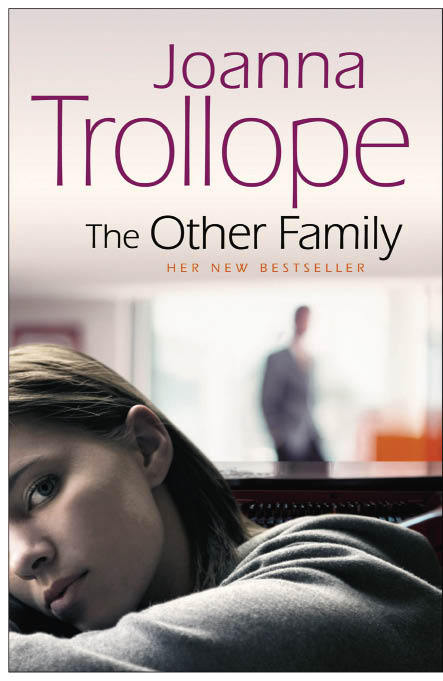It would not have been so easy to describe what Joanna Trollope’s early novels were ‘about’ in a few words, but recently she has been writing what the Americans call ‘issue books’, and they can be more readily encapsulated.
It would not have been so easy to describe what Joanna Trollope’s early novels were ‘about’ in a few words, but recently she has been writing what the Americans call ‘issue books’, and they can be more readily encapsulated. The Other Family is about just that — a man who has, or had, two of them. We only meet Richie in death; at the start of the book Chrissie and their three daughters are returning from the hospital after Richie has died of a heart attack, trying to find a way to cope with what has just happened, struggling even to make tea, they are so dazed.
Richie was a musician, a man wedded more to his piano than any human, and not so long ago he was famous, in demand and well-off. Lately his career has been fading, and Chrissie, who was his manager, discovers with a shock that there is very little money left. She also discovers, on visiting the solicitor, that Richie left the beloved piano and all his earlier music royalties to ‘the other family,’ his actual wife, Margaret, in Newcastle, and their son Scott. Because he would never marry Chrissie, though they were together a long time, she faces even worse financial disaster than she thought — her house must go to pay inheritance tax.
The hurt caused by Richie’s public acknowledgment of Margaret and their son is natural, but the vindictiveness with which Chrissie and her daughters behave is not. She spurns Margaret at the funeral and only lets the piano go when a friend makes the arrangements for her.
The daughters are, in very different ways, self-centred, selfish and spoiled. Only Amy feels anything for the other family. She contacts her half-brother secretly, visits Newcastle (the new vibrant city, very well caught), falls in love with it and starts to make an independent life. She and Scott have both inherited some of their father’s musical talent, and this helps to bond them, to Margaret’s bemusement and Chrissie’s disgust.
Do first and second, and perhaps even subsequent families, get on? Should they be expected to do so? In the casual, selfish merry-go-round of changing partners which is too often today’s ‘family life’ there are many casualties and it is each person for themselves, the young struggling to keep their heads above water, the old aggressively pursuing their own happiness — seen, of course, as their right.
Margaret in Newcastle is a strange woman and I could not quite make her out. Chrissie is a bitch, though some readers may not dislike her as much as I did. The death of Richie will be a mere blip in his daughters’ pursuit of desirable lives, and to Chrissie it will, before long, be less of a personal loss than a financial inconvenience.
The immediate post-death shock is sensitively described, but I did not get a strong sense of the ongoing, devastating, tearing grief and its long aftermath. The girls pick up the pieces quickly — understandably — but apart from being fazed by practical matters, Chrissie bounces back and ‘moves on’ a little too fast.
Richie is, inevitably, a shadowy figure, but one gets a pleasing sense of a certain cunning in his nature. It’s doubtful whether it was love or even affection that made him leave the piano and the royalties to his first family, nor does it seem likely that he knew or cared much whether Chrissie and his daughters were left in financial distress as a result. The musical background is conscientiously painted in, but comes to life best when we are in Newcastle, where Margaret is an agent for performers — a job which, we feel, hasn’t changed much since the 1930s.
Looking back at Joanna Trollope’s earlier, outstandingly rich, acutely observed novels I find an instinctive take on contemporary life, a wisdom about relationships and individual motives and a brilliant insight into the minds of children, which made The Rector’s Wife and A Village Affair so compelling. Something has been sacrificed here to ‘issues’. But she writes as observantly as ever. There are always those brilliant brief glimpses of some detail which ring wonderfully true and pinpoint a person or a place exactly. Amy wears ‘ballet slippers so shallow they were like a narrow black border to her naked feet.’ Perfect.







Comments